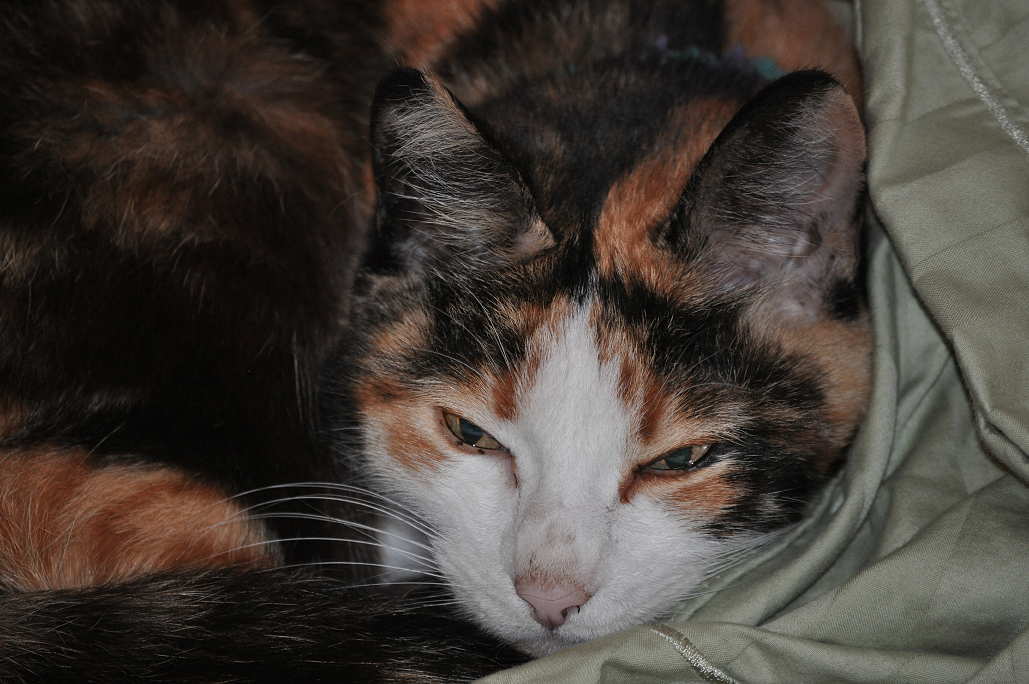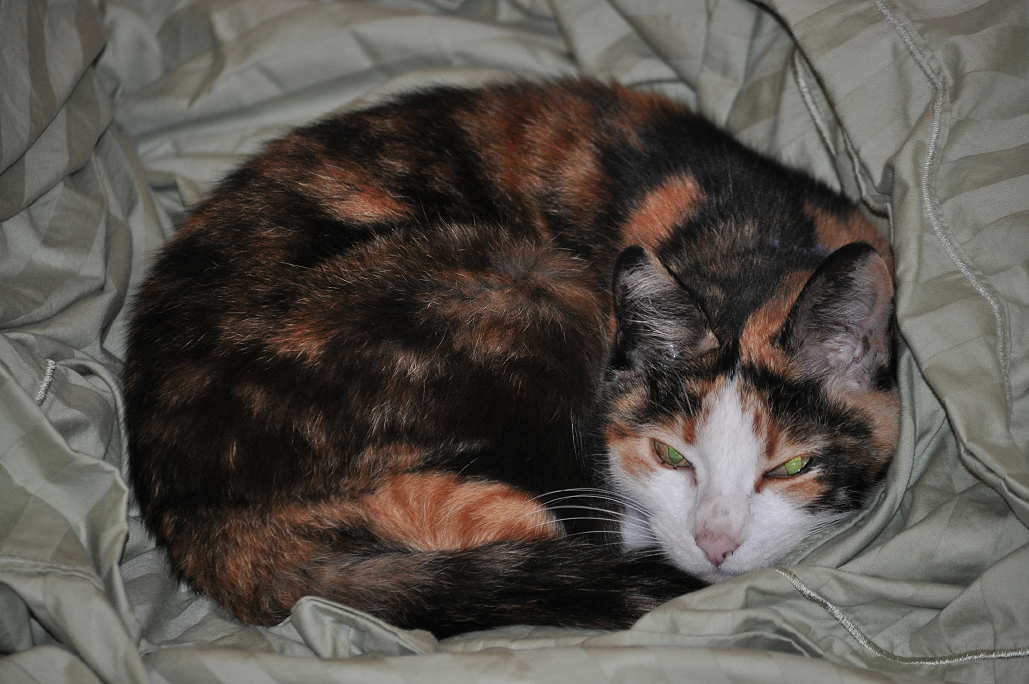My 16 y.o. female cat has been diagnosed with Stage 2 Renal Failure based on blood and urine work. Numbers for BUN/Creatinine/Urine Specific Gravity are 39/2.1/1.028. Six months ago the numbers were 41/1.8/1.037. Of the symptoms given, she may be throwing up more (though that stopped recently with the introduction of New Cat to the household) and drinking more water.
Based on this website which uses creatinine values she on the low end of Stage 2.
Vet wants to put her on Calcitriol, a vitamin D derivative that will help to (from what I understand) slow the progress and make her more comfortable. It is a liquid, not a pill. You then check the blood at 2 weeks and 4 weeks and then every six months to make sure that the calcium levels haven’t gone whacko.
Any advice from those who have been down this road? Or any random people who feel like commenting? Anyone have experience with Calcitrol specifically?

 ).
).
